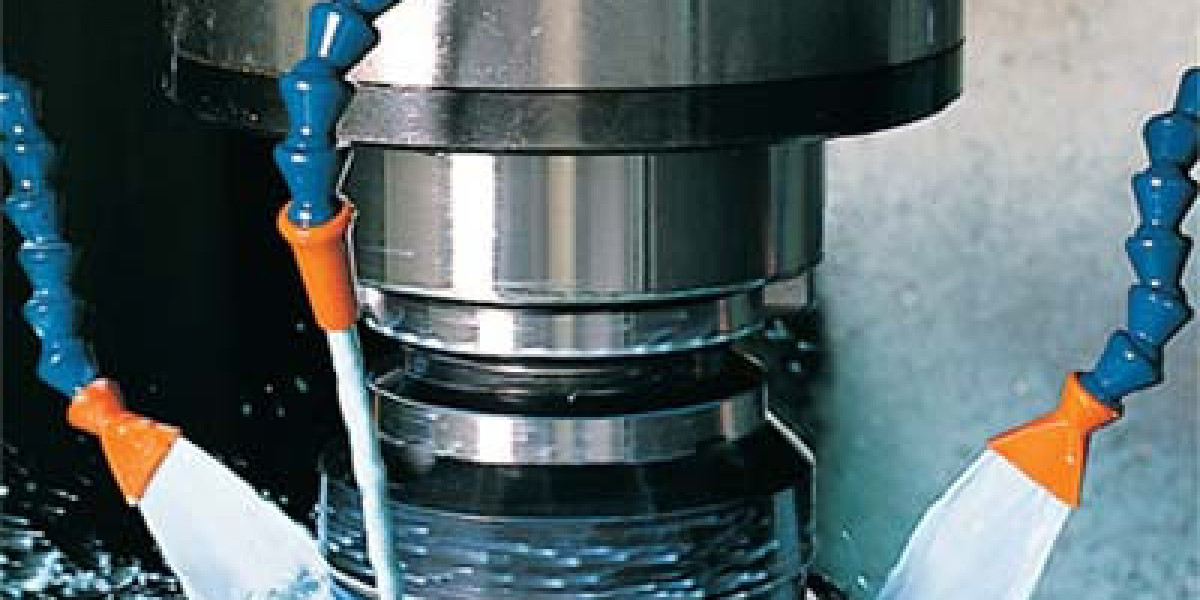The metalworking fluids market is a crucial part of the industrial sector, providing essential lubrication, cooling, and corrosion protection in machining and metal-forming processes. These fluids help improve efficiency, extend tool life, and enhance precision in manufacturing. However, as industries increasingly focus on sustainability and regulatory compliance, the challenges of recycling and waste management are becoming more prominent. Managing used metalworking fluids is complex due to contamination, regulatory restrictions, and environmental concerns, requiring innovative solutions to ensure responsible disposal and reuse.
The Complexity of Metalworking Fluid Waste
Metalworking fluids degrade over time due to exposure to high temperatures, metal fines, and microbial contamination. Once they lose their effectiveness, they must be either treated, recycled, or disposed of in compliance with environmental regulations. The composition of these fluids, which may include oil-based, synthetic, or semi-synthetic formulations, makes waste management particularly challenging.
Several factors contribute to the complexity of handling used metalworking fluids:
- Contamination with Heavy Metals and Particulates – During machining, fluids accumulate metal fines, oils, and other impurities that can make recycling difficult. Removing these contaminants requires advanced filtration and separation technologies.
- Bacterial Growth and Fluid Degradation – Over time, metalworking fluids become breeding grounds for bacteria and fungi, leading to foul odors, reduced lubrication properties, and health risks. Contaminated fluids must undergo treatment before disposal or recycling.
- Chemical Composition and Emulsification – Many fluids contain emulsifiers, corrosion inhibitors, and biocides that complicate separation processes, making traditional recycling methods less effective.
Addressing these issues requires a combination of treatment technologies, regulatory compliance, and industry-wide initiatives to promote sustainable practices.
Market Insights into Recycling and Waste Management
As sustainability becomes a priority, the metalworking fluids market is seeing increased efforts to develop recycling solutions and waste reduction strategies. Several key trends are shaping how industries approach fluid management:
Stringent Environmental Regulations
Governments worldwide are implementing stricter guidelines on industrial waste disposal, pushing manufacturers to adopt environmentally friendly practices. Industries must comply with regulations that limit the discharge of hazardous substances into water systems, requiring proper treatment and disposal methods.Advancements in Fluid Recycling Technologies
New filtration and separation technologies are improving the ability to recycle and reuse metalworking fluids. Ultrafiltration, centrifugation, and vacuum distillation are among the methods being used to extend fluid life and reduce waste generation. By removing contaminants effectively, these technologies help manufacturers lower costs and minimize environmental impact.Growing Adoption of Bio-Based Fluids
The shift toward bio-based and biodegradable metalworking fluids is helping reduce the environmental challenges associated with waste disposal. These fluids are formulated to break down more easily, reducing the long-term impact of disposal compared to traditional petroleum-based fluids. However, their stability and compatibility with recycling processes remain areas of ongoing research.On-Site Treatment and Waste Minimization
Many manufacturers are investing in on-site fluid management systems to reduce waste at the source. Fluid recycling units integrated into machining operations help extend the lifespan of fluids, lowering overall consumption and disposal needs. Additionally, better maintenance practices, such as monitoring fluid concentration and pH levels, help prevent premature degradation.Economic Considerations in Waste Management
The cost of proper disposal and recycling can be significant, influencing how companies manage their fluid waste. While some manufacturers see recycling as a long-term cost-saving measure, others struggle with the initial investment required for advanced treatment technologies. Developing cost-effective solutions that balance sustainability with operational efficiency is a key challenge for the industry.
The Future of Sustainable Fluid Management
The future of the metalworking fluids market will depend on continued innovation in recycling and waste management. Research into new biodegradable formulations, advanced filtration methods, and closed-loop recycling systems is expected to drive improvements in sustainability. Collaboration between fluid manufacturers, regulatory bodies, and industrial users will play a crucial role in creating a circular economy for metalworking fluids, where waste is minimized, and resources are efficiently utilized.
learn more: https://www.pristinemarketinsights.com/metalworking-fluids-market-report








